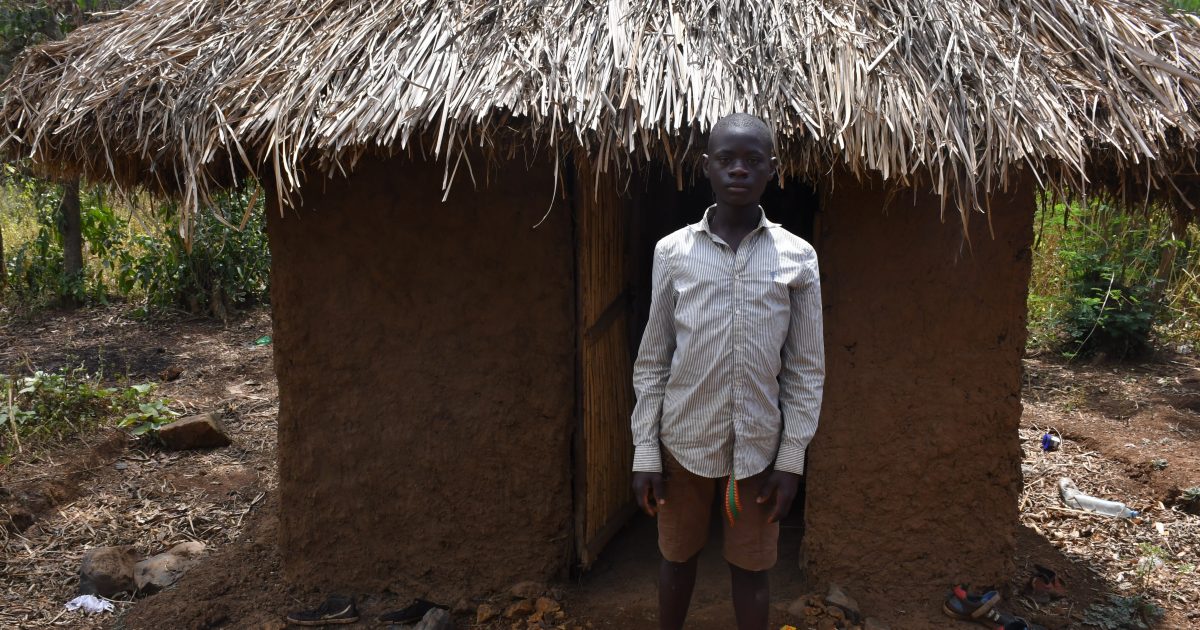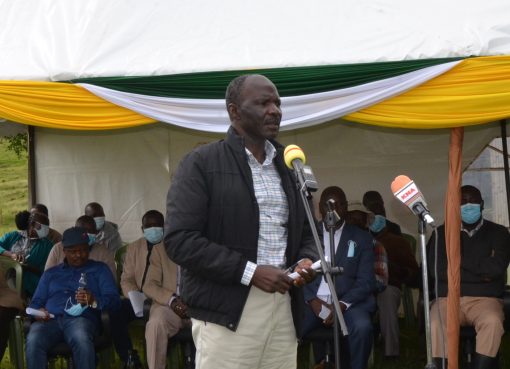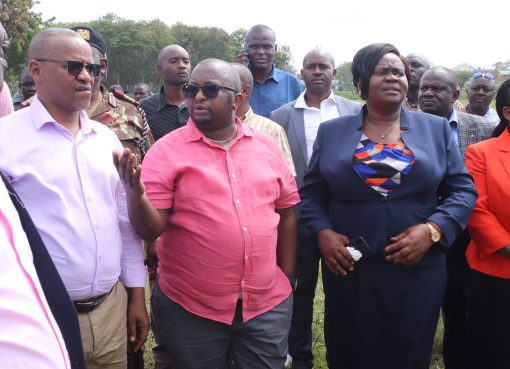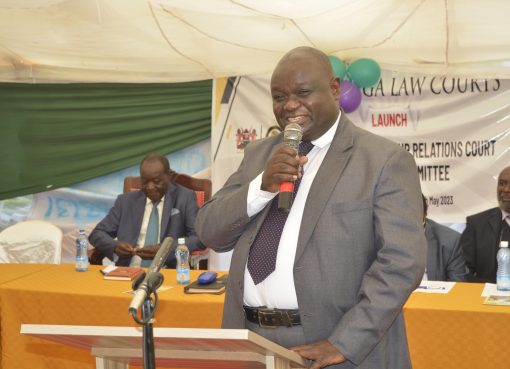In Kanyamaji village, Alego Usonga Sub County in Siaya County, one boy has shocked many by taking up the responsibilities of caring and providing for his father and ailing grandmother while funding his own primary education fees.
Thomas Ouma aged 14, the third born in a family of five children, has been the sole breadwinner for as long as he can remember because his childhood has been one of survival the best way he can.
His journey of hardships and struggles began nine years ago when his mother abandoned them after separating with their father in 2014 leaving with his four siblings but Thomas who was only five years old then, chose to stay. His choice even at that tender age was of a care giver choosing to remain behind to take care of his ailing grandmother, Regina Achieng Hela.
The family split led his father to sink into depression that saw him waddle into alcoholism which made him neglect his son and the mother who is Ouma’s paternal grandmother with their only salvation coming from his uncle who is his father’s brother. This aid however came to an abrupt end in 2016 when the uncle could no longer bear the financial burden. This left the young boy with no one but himself in the presence of an alcoholic father and an ailing grandmother.
As his age mates went about learning, childhood was a luxury Thomas could not afford as he was forced to grow up and fend for himself and his two elders.
In a desperate attempt to find a source of livelihood, Thomas aged seven years approached one of the fishermen living around their village to tag him along when going fishing, Thomas narrates that the man at first declined his request but upon insisting, later on he was given a chance.
“It was very difficult even raising the net because I was so small,” said Ouma. “These nets have sinks which are very heavy that a young person like me cannot endure to lift,” he added.
He would then sell some of the fish he got to help him in buying basic commodities like cooking flour, cooking oil, bar soap and even buy medicine for his grandmother.
Unfortunately, Ouma soon found himself destitute again after the death of his fishing mentor who drowned in Lake Kanyaboli after suffering an epileptic episode while fishing.
He then says he tried to speak with his father to convince him to take up his role of taking care of his family but all the efforts were in vain.
“I was forced to look for other means of making an income and I was able to start selling native vegetables commonly found around where I live and this is what has kept me going so far,” he says, adding that he chose to focus on a variety locally known as ‘mrenda’ (Jute Mallow in English) because it grows naturally and does not require any capital but only body energy to uproot and distribute them.
“I normally pluck these vegetables every Saturday evening, leave them outdoor throughout the night to retain their freshness, pack them in the morning in sacks and carry them into Ramba market which is very far from home, and in most cases walk or depend on lifts so as to cut down on cost,” says the young boy.
Ramba market is located in Alego Usonga Sub County and is approximately 25 kilometers from their home. He sells there every Sunday and also helps other people in making their own sales and in return, he gets paid.
The sale of the vegetables is what Thomas, now 14, has been using to provide for his father and grandmother and has fueled him positively into building his own grass thatched house and even surprisingly sponsoring his primary education through this same business.
Even though he is enjoying the fruits of selling these native vegetables, he faces some challenges that no child his age should be facing. His attendance in school has greatly suffered because he is not able to go to school on a daily basis.
He sometimes goes to school twice a week since he also helps his grandmother to tend to their shamba and has to raise his own school fees too by cultivating and doing menial jobs to supplement his income.
“My grandson has been of great help to me by providing basic commodities needed in the house and he ensures that every Sunday after his sales, he buys at least one commodity like sugar or maize flour that will sustain us for the whole week,” says Ouma’s grandmother, Achieng.
Some of the residents around the village have also come forth to help him by occasionally giving him the vegetables that he sells and Ouma notes that in a village razed by poverty, every little assistance he gets goes a long way.
Ouma aspires to become a pilot in future but he states that this will only come if he is focused on his studies by keeping himself at school which is now impossible since he has to work to take care of their family’s daily needs at home as well as raise his educational requirements at school.
He expresses his longing to join secondary school next year but fears he might miss out on the opportunity because of his lack of finances and his family’s impoverished situation. This paired with the fact that his meagre income now will not be enough to see him through a full term of secondary school has led him to appeal to the well-wishers to come to his aid and help him quench his thirst for education.
By Calvin Otieno and Mourice Onyango





